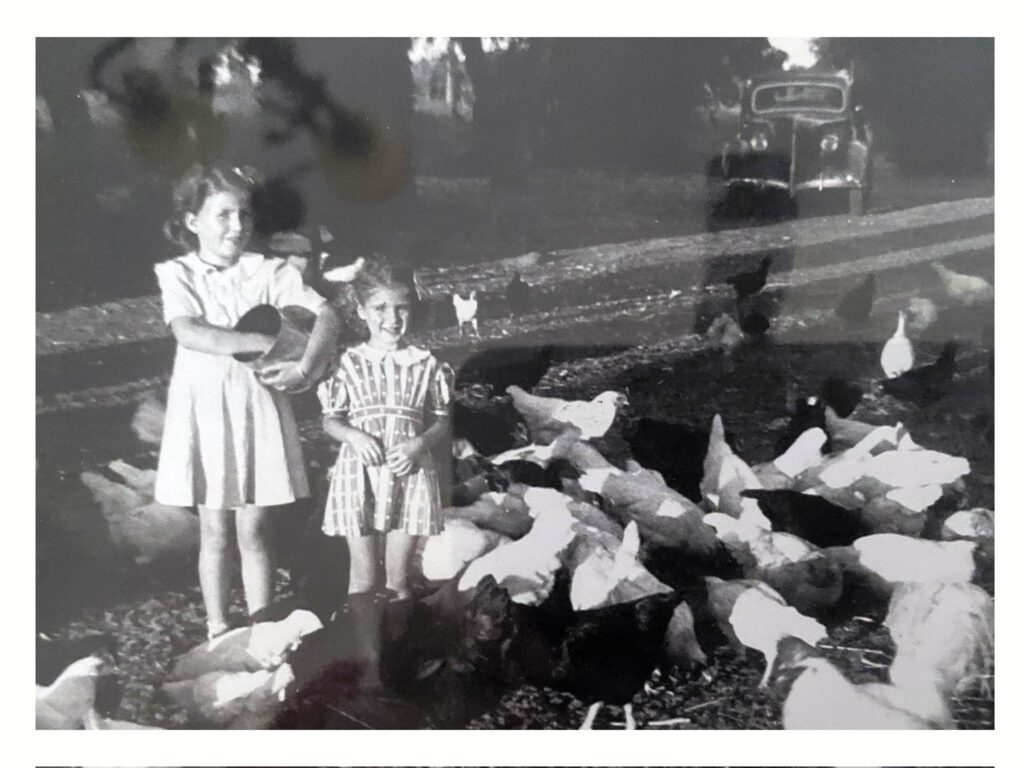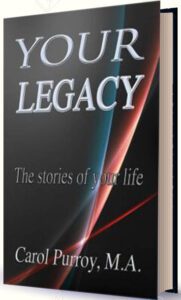Have you ever looked at a genealogy chart—a “family tree”—and thought, every one of those people had a lifetime of stories: adventures and misadventures, jobs or professions, successes and failures, likes and dislikes, friends and lovers, et cetera. Yet chances are no one knows much, if anything, about them. All that remains is their name and their birth and death dates . . . maybe a photograph or two.
My favorite TV show is FINDING YOUR ROOTS on PBS, with host Henry Louis Gates, Jr. In each episode he researches a celebrity’s ancestral family using all kinds of tools, including DNA. His guests are happy to learn not only their ancestors’ names but, wherever possible, their stories. They all want the stories.
News Flash: your current and future descendants, and perhaps others, will want your stories too. You may think, Oh, my kids and grandkids know all about me, I don’t have to write them. Maybe they do, but by the next generation, or the next, your stories will be lost. You will be lost. They’ll just know your name . . . if that. You deserve to be remembered, and, unless you’re famous, it’s only by recording your stories—written or videotaped—that that can happen.
Every time an elder dies a library is lost.
You probably don’t think of your life as anything out of the ordinary. And maybe for your time and place, it wasn’t. But remember, you’re recording your life stories for future generations about what it was like to live in a time they can’t even imagine. So far as they’re concerned, it’s like a visit to another planet.

(That’s not our car. We had a Model T.)
When my granddaughter read about my early childhood on my grandparents’ farm, she asked in disbelief, “Is that you, Grandma?” She couldn’t imagine me living in a farmhouse in which the only plumbing was a cold water faucet at the kitchen sink, and a galvanized washtub was brought in for Saturday night baths. Or going to the library every two weeks because we didn’t own any books. The Great Depression was in full sway, and was characterized in memoirs of my childhood.
In telling your stories you bring history to life. Your stories happened in the context of what was going on around you, so your readers will learn a history lesson in a way that doesn’t put them to sleep. It tells of real people about whom they care.
I’ve taught memoir writing for over 30 years. I wrote the book on memoir—YOUR LEGACY: The stories of your life—and used it as my class’s textbook. So far, 25 of my students have published their books (that I’m aware of), as well as hundreds more who “published” spiral, photocopied “books” at Office Depot or Staples.
YOUR LEGACY is a great gift for a parent or grandparent, or even for yourself. It includes suggestions for topics and activities to get you started, as well as hints on how to go about it. It can be a guide for questioning parents and grandparents about themselves and their families, and starting them on the journey to record their memoirs. Click on this link for more information: YOUR LEGACY
